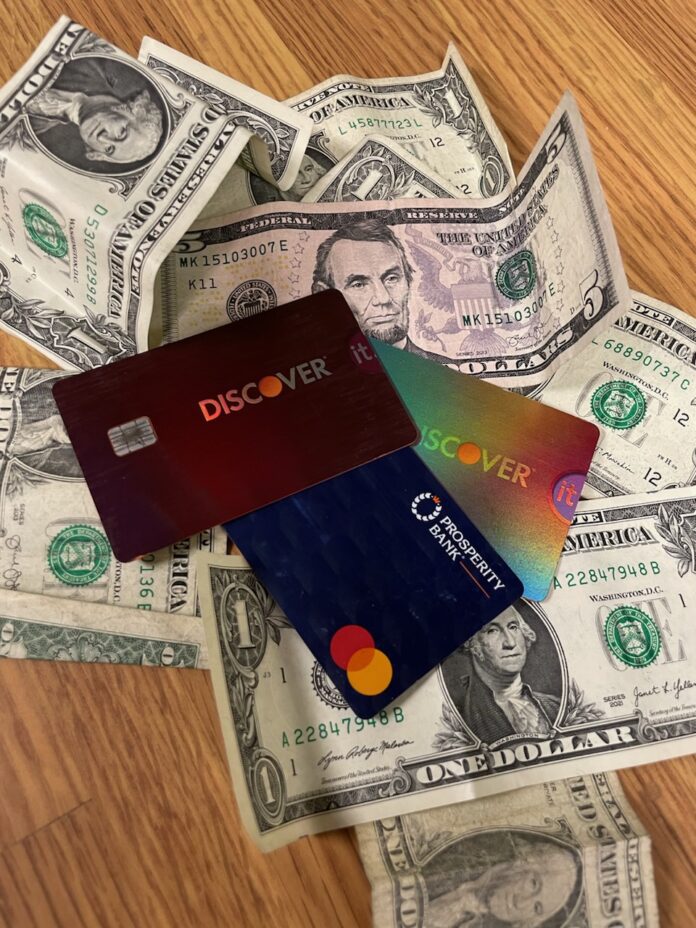
A UD student’s advice on managing money and debt
Telling a UD student to learn about money is like telling someone with no theological background to read the “Summa” – where does one even begin? I would highly recommend starting by understanding something college students are all too aware of: debt. Fear not, but proceed forward curiously, illuminating the darkness of uncertainty and doubt with knowledge. Consider this an opportunity for growth and the accumulation of a new set of skills.
As you pursue a study of debt, begin to focus on the often forgotten and villainized credit card. Although it is of utmost importance to build a credit history, it is even more important to know thyself. Self-control is a virtue that must be cultivated in all aspects of life, and no less so in the realm of the acquisition of goods. In order to receive the full benefits of a credit card, spending with prudence is unquestionably necessary. College is the perfect time to work on this virtue and practice frugality, and therefore develop a healthy financial mindset.
Acquaintance with terminology is important. A credit score is a numerical summary of your creditworthiness based on your credit report, which itself is a collection of your credit history.
Your credit history consists of five factors: payment history, credit utilization ratio, length of credit history, types of credit and the number of recent credit inquiries. Payment history is exactly what it sounds like and is the most important element affecting your credit score, asking the question: have you consistently made at least the minimum payment on time?
The second factor, although somewhat complex, can be summarized as the ratio of your total credit card debt to your overall credit limit across all accounts. Length of credit history is a factor many people do not know about and which can become quite haunting as the age of your oldest credit account affects your score, and quite dramatically.
This is why I urge people to acquire a credit card as soon as possible. Types of credit are simply the mix of credit accounts, for example: student loans, car loans, credit card debt, etc. This is a minor factor in the calculation of your credit score and is worth ignoring for now, although as students with loans, the addition of a credit card will positively affect this factor.
The number of recent credit inquiries is how many credit lines you have applied for in the past two years, whether you received them or not. These credit inquiries will affect your score for about a year, so caution and good judgment are advised when applying for any credit, especially since people with less credit history and a lower credit score are more likely to be denied loans and credit card applications.
A good credit score is one of the most important aspects of your financial wellbeing because the world is financed on debt. If you are like most people, you will take out a loan to buy your house, a loan to buy your car, and a loan to purchase your education.
In short, any large purchase will be based on borrowed money. Do not fear! Loans, when taken on with prudence and thought, are not dangerous but in fact allow you to ac- quire goods you would not otherwise have been able to obtain. Furthermore, a good credit score grants lower interest rates, which keeps more money in your pocket every month. A fact worth mentioning is that many landlords now require a credit check before leasing, which is often a major shock and potential detriment to people’s plans upon graduating.
The credit card is a tool for not only creating a credit history but receiving a few goodies — in the form of points and benefits — along the way. Of course there are different levels of credit card complexity and credit score requirements depending on the card.
The place that everyone should begin is with the “Discover It Secured Credit Card,” which requires no credit history and serves as a great starter card because of how it works. You give Discover a $250-$500 deposit, which serves as your credit limit.
Each month, you pay it off like a normal credit card and after seven months of not exceeding your limit and paying it off on time you receive your deposit back and it becomes a real credit card. The benefit is that over those initial seven months, you begin to build your credit score so that at the end of the period you have a credit score (where there was none previously) and a real credit card.
Debt, for better or worse, is a fundamental aspect of the world we live in. It is not something to be feared, but a tool to be used and understood. Explore financial topics with curiosity and know that these skills will serve you for the rest of your life.
The key to responsible credit card use is to always, always, always pay it off on time and in full. Finance is just a game to be played, and the rewards are truly remarkable.